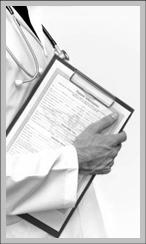March 2011 Volume 27, Number 4
New York State Medicaid Update
The official newsletter of the New York Medicaid Program
Andrew M. Cuomo, Governor
State of New York
Nirav R. Shah, M.D. Commissioner
New York State DOH
Jason A. Helgerson, Medicaid Director & Deputy Commissioner
Office of Health Insurance Programs
In this issue....
POLICY AND BILLING GUIDANCE
- Medicaid Breast Cancer Surgery Policy
- Dental Place of Service (POS) Policy and Billing Guidance
- Changes in Ambulette Enrollment Policy
- New Ambulette Provider Surety Bond Requirements
- Billing Reminder For Institutional Providers Required To Use NPI
- New Rules for Provider Screening and Enrollment
PHARMACY UDATES
- Where is YOUR e-Prescribing Check?
- Drug Utilization Review (DUR) Program Recommendations Now Available on Web
- Providers should have prescriber's individual NPI number available when calling for prior authorization (PA)
- NY Medicaid Prescriber Education Program: Treating Type 2 Diabetes Mellitus
- Change in Early Fill Edit
ALL PROVIDERS
- Understanding the Importance of Response Files for Electronic Claims
- Claim Balancing Importance
- Electronic Funds Transfer (EFT) for Provider Payments
- Seminar Schedule and Registration
- Provider Directory
Sign up today and join the eMedNY LISTSERV®
New York State Medicaid has developed and implemented a LISTSERV® system that allows providers, vendors and other partners to instantly receive eMedNY related information and notifications. The LISTSERV® email system runs on a free, wide-open platform and enrolling is as simple as visiting www.eMedNY.org. Any number of individuals in your office may sign up for this free service. Questions? Please contact the eMedNY Call Center at (800) 343-9000.
Medicaid Breast Cancer Surgery Policy
Return to Table of Contents

New York State Department of Health (NYSDOH) policy mandates that Medicaid beneficiaries receive breast cancer surgery services at high-volume facilities. A facility that is considered high volume performs an average of 30 or more all-payer mastectomy and lumpectomy procedures associated with a breast cancer diagnosis overa three-year period. Low-volume facilities will not be reimbursed for breast cancer surgeries provided to Medicaid beneficiaries. This policy is part of an ongoing effort to reform New York State Medicaid and to ensure the purchase of cost-effective, high-quality healthcare, and better outcomes for its beneficiaries. Research suggests that five-year survival increases for women when they have their breast cancer surgery performed at high-volume facilities by high-volume surgeons. The Department has completed its annual review of all-payer breast cancer surgical volumes for 2007 through 2009 and identified 67 low-volume hospitals and ambulatory surgery centers throughout New York State. These facilities have been notified of this restriction. This policy does not affect a facility's ability to provide diagnostic or excisional biopsies, and postsurgical care (chemotherapy, radiation, reconstruction, etc.) for Medicaid beneficiaries. The Department will annually re-examine all-payer surgical volumes to revise the list of low-volume hospitals and ambulatory surgery centers. This assessment is performed using the Statewide Planning and Research Cooperative System (SPARCS) database. The annual review will allow restricted providers meeting the three year average minimum allpayer volume threshold to provide breast cancer surgery services for Medicaid beneficiaries. For more information and a list of restricted low-volume facilities, please visit: www.nyhealth.gov/health_care/medicaid/quality/surgery/cancer/breast/
Dental Place of Service (POS) Policy and Billing Guidance
Return to Table of Contents

Billing Clarification: In September 2010, the New York State Department of Health (NYSDOH) issued guidance that allowed fee-for-service (FFS) dental providers that previously billed Medicaid for their professional services provided in free-standing ambulatory surgery, hospital ambulatory surgery and emergency department places of service to continue to bill FFS for dates of service between February 1, 2010 and December 31, 2010. This extension also applied to dental services provided in the operating room to an individual in a hospital inpatient setting. This time frame has been extended and claims for these professional dental services with dates of service from February 1, 2010, through present may now be submitted for reimbursement. For claims over 90 days post date of service, report late submission code of 3 - Authorization Delays.
New Place of Service (POS) Payment Methodology: For dates of service on or after April 1, 2011, the payment for professional dental services provided in an ambulatory surgery, emergency department and inpatient POS will be reimbursed at 65 percent of the office fee schedule amount. The correct POS must be reported on every dental claim. Reporting the incorrect place of service may result in inaccurate payment, audit review and/or ensuing disallowances. The most common POS for dental FFS claims are as follows:
- 03 - School (Valid only for orthodontia provided in a school based clinic)
- 11 - Office
- 15 - Mobile Unit
- 21 - Inpatient Hospital
- 22 - Outpatient Hospital (Valid only for orthodontia provided in a hospital clinic or
any dental service provided in a hospital-based ambulatory surgery center while the patient is under general anesthesia or intravenous sedation) - 23 - Emergency Room - Hospital
- 24 - Ambulatory Surgical Center (free-standing)
- 49 - Independent Clinic (Valid only for orthodontia provided in a free-standing clinic).
Article 28 Clinic Services (POS 22 and 49) and Orthodontia:
As noted in the March 2010 Medicaid Update, the professional component for dental services is included in the APG payment to the clinic. Therefore, dentists providing dental services in an Article 28 hospital clinic, free-standing clinic or school-based health clinic may not bill the Medicaid FFS program for any dental services other than orthodontia. Orthodontists will continue to bill Medicaid FFS for professional services provided in all POS. There is no POS fee differential for orthodontia.
Resources:
- Billing Assistance/Claims: eMedNY Call Center (800) 343-9000.
- Fee Schedule & Billing Guidelines: http://www.emedny.org/ProviderManuals/Dental/index.html.
- FFS Dental Prior Approval and Reimbursement: Dental Prepayment Review (800) 342-3005 (opt. #2).
- Article 28 Clinic/APG Reimbursement: Email: apg@health.state.ny.us or call (518) 473-2160.
Attention: Ambulette Transportation Providers
Changes in Ambulette Enrollment Policy
Return to Table of Contents

Under current Medicaid guidelines, potential Medicaid ambulette providers are denied enrollment in the Medicaid program when the proposed service will operate in New York City and the following counties determined by the New York State Department of Health (NYSDOH) to have an adequate number of existing ambulette providers:
- Fulton
- Monroe
- Nassau
- Niagara
- Onondaga
- Rockland
- Suffolk
- Westchester
The Medicaid program considers an exception to this policy when the new applicant has purchased an existing ambulette provider in one of the counties listed above, or has received a transfer of stock from the existing owner. In these change of ownership instances, there is no increase in the number of ambulette providers in the county. The new owner is required to enroll in the Medicaid program, and upon Department approval, a new Medicaid provider identification number is issued effective the final date of sale or transfer of stock.
Effective September 1, 2011, a transfer of ownership from one company or corporation to another, or the addition of new owners, stockholders or partners, for an ambulette provider operating in New York City or any of the counties listed above will only be approved by the Department when the new owner(s) agree in writing to assume all current Medicaid liabilities and any Medicaid liabilities resulting from claims issued during the seven years prior to the purchase. Therefore, a change of ownership application must contain a copy of the Department.
Questions? Please contact the Office of the Medicaid Inspector General at (518) 408-0853
New Ambulette Provider Surety Bond Requirements
Return to Table of Contents

The Office of the Medicaid InspectorGeneral (OMIG) has found that several ambulette providers have gone out of business or changed ownership while having outstanding debts owed to the Medicaid program. Medicaid regulations allow for financial security, provided in the form of surety bonds, to be required as a condition of participation or continued enrollment in the Medicaid program for providers where claims submitted for payment are expected to exceed $500,000 in a year, or $42,000 in any month. Medicaid currently requires financial security in the form of a surety bond for pharmacies, in certain circumstances, based on annual estimated claims; and this requirement will be expanded to include ambulette providers. The OMIG has determined that applicants for ambulette services located in Nassau, Westchester, Monroe, Erie, Orange and Suffolk counties that submit their applications on or after March 1, 2011, will be requiredto submit a surety bond prior to enrollment if the ambulette provider is determined to be otherwise eligible for enrollment. A review of submitted claims show that annual Medicaid ambulette billings per provider in each of those counties in 2009 exceeded $500,000. All counties in New York City also exceeded the threshold for the surety bond requirement; however, new ambulette providers located in New York City are not currently being enrolled in the Medicaid program. In New York City, ambulette providers enrolled as a result of an ownership change will be required to submit a bond.
The surety bond requirement will apply to all applicants for new enrollment in the Medicaid program with service addresses in the counties listed above, and for enrollment as a result of an ownership change in New York City and the counties listed above where there is a new entity purchasing the company. The initial bond must be submitted prior to enrollment and the term of the bond must be for at least one calendar year. The applicant will be contacted by the OMIG once an initial determination has been made that enrollment can otherwise be granted. At that time, the provider will be asked to submit a surety bond within 90 days in order to secure enrollment. If an applicant fails to provide a bond, the application will be denied. Although regulations permit the amount of a requested surety bond to be equal to the total estimated claims for payment for an entire year, OMIG has decided not to use that as a benchmark. Therefore, the OMIG will request surety bonds for ambulette providers in the amount of $100,000 per year per applicant, or $25,000 per year for each ambulette owned or used by the applicant, whichever amount is lower. All surety bonds must be renewed annually. If the amount initially requested is less than $100,000, the amount of the bond may increase, up to $100,000, upon renewal if the number of ambulettes owned or used by the applicant increases. It should be noted that surety bonds are issued by insurance companies and the amount of the bond would be much higher than the actual cost to the applicant.
If an applicant estimates that the company will bill less than $500,000 for ambulette services in the first full year of Medicaid enrollment, the applicant may submit a letter with the company's enrollment application stating this and requesting an exception to the bond requirement. The letter must include an estimate of the company's annual Medicaid billings, as well as the number of ambulettes the company owns or leases, and plans to purchase or lease in the first year of operation. OMIG will review this information, as well as billings of similar companies, to make a determination as to whether the bond will be required.
In addition to the pre-enrollment bond requirement in the counties listed above, all applicants approved for enrollment for ambulette services that submit an application on or after March 1, 2011, regardless of where the company is located, will be subject to a review of claims after enrollment to determine if Medicaid billings exceed $500,000 per year or $42,000 in any month. If billings exceed that threshold, a surety bond for $100,000 per year (or $25,000 per year for each ambulette owned or used by the applicant during the period reviewed if that amount is lower), will be required for continued enrollment. Failure to provide a bond within 90 days will result in termination from the Medicaid program.
All surety bonds must be renewed annually while the provider is enrolled in the Medicaid program. The provider will be given notice that renewal is required at least sixty days prior to the expiration date. Failure to renew a bond by the expiration date will result in termination from the Medicaid program. If a provider's billings have dropped below the required threshold of $500,000 per year for the year that the surety bond was in effect, the provider may submit a request to be relieved of the obligation to provide a bond at the time renewal is required by Medicaid.
Questions? Please contact the Office of the Medicaid Inspector General at (518) 408-0853.
Billing Reminder For Institutional Providers Required To Use NPI
Return to Table of Contents
The accurate reporting of where a service was performed is critical for correct reimbursement. eMedNY identifies where care was provided by using the nine-digit zip code (i.e., zip+4) of the service location provided on claims. If the nine-digit zip code is not found as a service location on enrollment records, the remittance may indicate Edit 02068, 'Provider Rate Found Without Matching Zip/Locator Code.' To help facilitate potential claim payment problems related to service location codes, claims failing Edit 02068 on or after April 15, 2011, will be placed on a one-week payment hold. A common error to look for is the use of the nine-digit zip code of your pay-to address instead of the nine-digit zip code of your service location(s). The payment hold is a temporary measure. Eventually, claims hitting Edit 02068 will be denied.
Questions? Please contact the eMedNY Call Center at (800) 343-9000.
New Rules for Provider Screening and Enrollment
Return to Table of Contents
Effective March 25, 2011, new Federal Rules and Regulations surrounding provider screening and enrollment will take effect. For more information on the changes to the enrollment process, please visit www.eMedNY.org.and click the Provider Enrollment section or reference the Federal Register 42 CFR Parts 405, 424, 447 et al., for the complete set of rules and regulations. These changes may not have an immediate impact on your Medicaid enrollment. Watch for future notices which will be of importance to you.
Where is YOUR e-Prescribing Check?
Return to Table of Contents

During March 2011, over 12,000 New York Medicaid e-prescribing incentive checks were mailed to clinicians. These checks covered the period of May 1, 2010 through September 30, 2010. Unfortunately, over 600 checks were returned to the Department as undeliverable. The checks were mailed to the "Pay To" address listed in the eMedNY file for each individual prescriber. NOTE: Even if your practice receives its payments at the correct address, your individual address may still be in need of an update.
To qualify for this first check, you must have been enrolled as a fee-for-service (FFS) provider, and have e-prescribed for ambulatory Medicaid beneficiaries between May and September 2010.
If you meet these criteria, and have not yet received your check, you need to take action:
To verify your address on file contact the eMedNY Call Center at: (800) 343-9000 or you may request your addresses in writing by submitting the "Request for Provider Reports" form located at: http://www.emedny.org/info/ProviderEnrollment/Provider%20Maintenance%20Forms/Request%20For%20Provider%20Reports.pdf
If the address is in error, go to Provider Enrollment, click on Provider Maintenance Forms, and select Fee-for- Service Address Change in the section titled Provider Enrollment Maintenance forms. The form is available at: http://www.emedny.org/info/ProviderEnrollment/Provider%20Maintenance%20Forms/6101- Address%20Change%20Form.pdf
Download, complete, and sign the Change of Address form and mail to:
Computer Sciences Corporation
P.O. Box 4610
Rensselaer, New York 12144-4610.
When you receive confirmation from CSC that your address has been updated, please contact Medicaid to request that the check be re-mailed to you. The check cannot be mailed until your address change appears in eMedNY. Once your correct address appears, please contact (518) 474-8045, and re-mailed.
If you e-prescribed for ambulatory Medicaid beneficiaries between May and September 2010, and your eMedNY individual address is correct, however, you haven't received a check, please contact Phyllis Johnson, Medicaid HIT Policy Coordinator, via email at: PEJ01@health.state.ny.us or by calling (518) 474-8045.
Attention: Medicaid and Family Health Plus Prescribers:
Drug Utilization Review (DUR) Program Recommendations Now Available on Web
Return to Table of Contents
The New York State Medicaid DUR Program Web site now includes links to step-therapy and frequency/quantity/duration parameters as recommended by the Drug Utilization Review Board (DURB). The Web site also includes educational letters that were distributed to providers highlighting evidence-based clinical practice guidelines and Food and Drug Administration (FDA) indications, dosing and safety information. These DUR program initiatives have been implemented to ensure clinically appropriate and cost effective use of these drugs and drug classes.
The New York State Medicaid Preferred Drug List (PDL) and Quick List now include links to DURB for several drugs and drug classes subject to the PDP.
The Preferred Drug List and additional information can be found online at:
https://newyork.fhsc.com and www.nyhealth.gov
For additional information on the Drug Utilization Review Program, please visit: http://nyhealth.gov/health_care/medicaid/program/dur/.
Links for Step Therapy and Frequency/Quantity/Duration recommendations as well as Provider Communications is available online at: http://nyhealth.gov/health_care/medicaid/program/dur.
Attention: Medicaid and Family Health Plus Providers:
Providers should have prescriber's individual NPI number available when calling for prior authorization (PA)
Return to Table of Contents
When providers call the clinical call center at (877) 309-9493 to obtain PA for drugs subject to the pharmacy PA programs, they will be prompted by the integrated voice response (IVR) system to enter the prescriber's individual National Prescriber Identifier (NPI) number on their touchtone keypad. Once a valid individual provider NPI number is entered, providers will be transferred to a certified pharmacy technician to complete the PA process. Group, Hospital, or Clinic NPI numbers will NOT be accepted.
Additional information to assist with the prior authorization process can be found at: https://newyork.fhsc.com/
For Medicaid Pharmacy prior authorization program questions, please call (877) 309-9493.
For billing questions, please call the eMedNY Call Center at (800) 343-9000.
Attention: Prescribers:
New York Medicaid Prescriber Education Program: Treating Type 2 Diabetes Mellitus
Return to Table of Contents
The recently completed white paper Treating Type 2 Diabetes Mellitus: A New York State Medicaid Clinical Guidance Document has been released through collaboration with the New York State Department of Health and the State University of New York.
This document reports on diabetes treatment strategies and includes information on diet and lifestyle as well as pharmacologic approaches for treating type 2 diabetes. This guidance is offered as a service to New York State Prescribers to keep them informed on current evidence-based approaches.
The diabetes white paper is available on the Prescriber Education Program (PEP) Web site at: http://nypep.nysdoh.suny.edu/diabetes/paper
Questions? Please call (518) 474-8045.
Attention: Prescribers and Pharmacists
Change in Early Fill Edit
Return to Table of Contents
Currently, when a Medicaid beneficiary has experienced a loss or theft of medication an early fill of replacement medication may be provided, with careful consideration. The decision to honor these requests has been based on the professional judgment of the prescriber and the pharmacist.
Consistent with our policy for handling early fill requests due to a temporary absence, effective April 1, 2011, the "04"(Lost/Stolen) Submission Clarification Code-Field 420-DK, currently in use, will not be acceptable as an override for the Early Fill edit. At a future date claims processed using the "04" will be denied. Pharmacy providers should instruct beneficiaries to contact their prescriber when medications have been lost or stolen. In no event will approval be granted for lost or stolen controlled substances.
Prescribers or their authorized agents may initiate a prior authorization request for a loss or theft of medication by contacting the Bureau of Pharmacy Policy and Operations at (518) 486-3209 for replacement. Approval will be granted for the balance of the medication reported lost or stolen.
Attention: Long-Term Care Pharmacy Providers
A newly admitted resident to a long-term care facility is eligible for an early fill on their medication. When medically necessary, a pharmacist can override edit 01642 "Early Fill Overuse" denial at the point of sale, by using a combination of the NCPDP Reason for Service Code (439-E4) 'NP', and a Submission Clarification Code (420-DK) of '02'.
Understanding the Importance of Response Files for Electronic Claims
Return to Table of Contents

With the upcoming changes to claims processing beginning July 21, 2011, (See Special Edition Medicaid Update February 2011, Pages 4-5), providers are urged to make certain that they or their vendors make necessary arrangements to prepare for the new response files that will be sent for HIPAA 5010 (D.0 for pharmacy) submissions.
Why is this so important?
Today, claim adjudication is performed after the file is accepted for processing. Therefore, claim denials are always reported on the provider's remittance. When a provider and/or vendor switch to submitting upgraded 5010 (D.0 for pharmacy), a number of edits will be moved to the pre-adjudication process and these rejected claims will never appear on the provider's remittance. The following are some examples of the editing that will be moved to the pre-adjudication process
- Invalid client ID
- Invalid diagnosis code
- Invalid procedure code
Unless the new response file (known as a 277 Claim Acknowledgement) is examined, providers will not know the status of the claims that have failed in the pre-adjudication process.
Institutional Providers:
In addition, for institutional providers, eMedNY will edit submitted revenue codes on 837 Institutional claims for validity. Today, claims with invalid revenue codes are not denied. In response to 5010 claim submissions, eMedNY will reject claims in the pre-adjudication process when an invalid revenue code is sent. Providers are urged to examine the revenue codes to ensure they are valid. Revenue codes are available from the NUBC manual available at www.NUBC.org.
Advantage:
The advantage of moving these edits to the pre-adjudication process is a much faster notification to providers for claims failing these edits. However, as stated above, if the 277CA is not examined, providers will never know the status of these claims. Please talk to your vendor!
Questions? Please call the eMedNY Call Center at (800) 343-9000.
Claim Balancing Importance
Return to Table of Contents
Effective July 21, 2011, providers must make certain that they or their vendors make plans to ensure electronic claims balance as required by the standard for HIPAA 5010 submission of 837 Institutional, Professional and Dental claims. Balancing will be enforced (multi-level balancing of charges, claim and line level coordination of benefits).
Today, claim balancing is not enforced by eMedNY but with the implementation of 5010 both 5010 and the current 4010 submissions must be balanced. Claims out of balance will be rejected by eMedNY. Claims that fail balancing compliance will be reported by the front end process in the 277CA (Health Care Claim Acknowledgment), and will not be reported on a Remittance Advice.
Details can be found in the February 2011 Special Edition Medicaid Update, Pages 14-15.
For a balancing example, please visit: http://www.emedny.org/HIPAA/5010/transactions/5010_Claim_Balancing_Example.pdf.
Questions? Please contact the eMedNY Call Center at (800) 343-9000.
Electronic Funds Transfer (EFT) for Provider Payments
Return to Table of Contents
Don't be left behind! Thousands of providers have signed up to have their Medicaid funds deposited directly into their checking or savings account.
Providers who have not yet signed up for EFT are urged to take advantage of the benefits of EFT, including:
- Facility or practice name and NPI;
- Eliminating the possibility of lost checks;
- Eliminating delays that would be caused by misdirected checks;
- Eliminating mail time;
- Eliminating trips to the bank to deposit checks; and
- Protecting the environment by eliminating the printing of paper checks.
Sign up today! The EFT application is available online at: www.emedny.org/info/ProviderEnrollment/Provider%20Maintenance%20Forms/EFT_Enrollment_Form.pdf.
Questions? Please contact the eMedNY Call Center at (800) 343-9000.
Seminar Schedule and Registration
Return to Table of Contents
- Do you have billing questions?
- Are you new to Medicaid billing?
- Would you like to learn more about ePACES?
- Are you wondering how the HIPAA electronic transaction upgrade (5010 implementation) will affect you?
If you answered YES to any of these questions, you should consider registering for a Medicaid seminar. Computer Sciences Corporation (CSC) offers various types of seminars to providers and their billing staff. Many of the seminars planned for the upcoming months offer detailed information and instruction about Medicaid's Web-based billing and transaction program - ePACES.
ePACES is the electronic Provider Assisted Claim Entry System which allows enrolled providers to submit the following type of transactions:
- Claims
- Eligibility Verifications
- Utilization Threshold Service Authorizations
- Claim Status Requests
- Prior Approval Requests
Physicians, nurse practitioners and private duty nurses can even submit claims in "REAL-TIME" via ePACES. Real-time means that the claim is processed within seconds and professional providers get the status of a real-time claim, including the paid amount without waiting for the remittance advice.
Fast and easy seminar registration, locations, and dates are available on the eMedNY Web site, including Seminar Document/Special Registration Instructions for 5010 Implementation Training at: http://www.emedny.org/training/index.aspx.
Please review the seminar descriptions carefully to identify the seminar appropriate for your training requirements. Registration confirmation will instantly be sent to your email address.
Please Note: Seminar schedule information is posted quarterly on the eMedNY Web site at the beginning of each respective quarter. Please continue to check for updated information.
CSC Regional Representatives look forward to meeting with you at upcoming seminars!
If you have questions about registration, please contact the eMedNY Call Center at (800) 343-9000.
Do you suspect that a Medicaid provider or beneficiary has engaged in fraudulent activities?
Return to Table of Contents
Please Call: 1-877-87FRAUD
Your call will remain confidential.
You may also complete a complaint form online at:
http://www.omig.ny.gov

Provider Directory
Return to Table of Contents
Office of the Medicaid Inspector General:
For general inquiries or provider self-disclosures, please call (518) 473-3782.
For suspected fraud complaints/allegations, call 1-877-87FRAUD (1-877-873-7283),
http://www.omig.ny.gov or visit www.omig.ny.gov.
Provider Manuals/Companion Guides, Enrollment Information/Forms/Training Schedules:
Please visit the eMedNY Website at: www.emedny.org.
Questions about billing and performing MEVS transactions?
Please contact eMedNY Call Center at: (800) 343-9000.
Provider Training
To sign up for a provider seminar in your area, please enroll online at:
http://www.emedny.org/training/index.aspx
For individual training requests, call (800) 343-9000 or email: emednyproviderrelations@csc.com
Enrollee EligibilityCall the Touchtone Telephone Verification System at any of the numbers below:
(800) 997-1111 (800) 225-3040 (800) 394-1234.
Address Change?
Questions should be directed to the eMedNY Call Center at: (800) 343-9000.
Fee-for-Service Providers
A change of address form is available at: http://www.emedny.org/info/ProviderEnrollment/allforms.html.
Rate-Based/Institutional Providers
A change of address form is available at: http://www.emedny.org/info/ProviderEnrollment/allforms.html.
Does your enrollment file need to be updated because you've experienced a change in ownership?
Fee-for-Service Providers please call (518) 402-7032
Rate-Based/Institutional Providers please call (518) 474-3575
Comments and Suggestions Regarding This Publication?
Please contact the editor, Kelli Kudlack, at: medicaidupdate@health.state.ny.us
Medicaid Update is a monthly publication of the New York State Department of Health containing information regarding the care of those enrolled in the Medicaid Program.